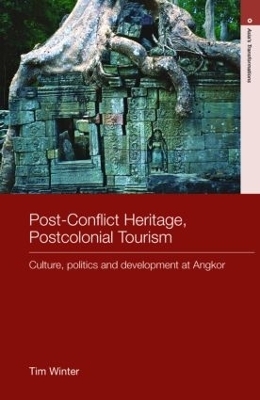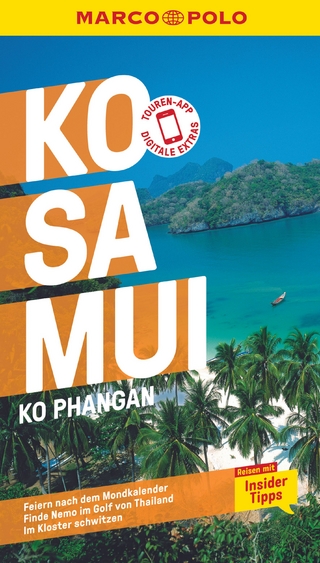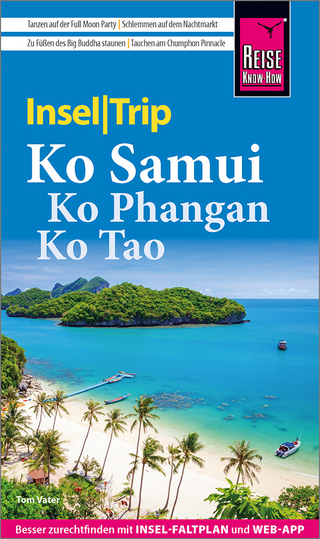
Post-Conflict Heritage, Postcolonial Tourism
Tourism, Politics and Development at Angkor
Seiten
2007
Routledge (Verlag)
978-0-415-43095-1 (ISBN)
Routledge (Verlag)
978-0-415-43095-1 (ISBN)
Weaving together a political analysis of heritage policies with an understanding of tourism as a series of intersecting cultural economies, this book explores a decade of world heritage and tourism in Angkor.
Angkor, Cambodia’s only World Heritage Site, is enduring one of the most crucial, turbulent periods in its twelve hundred year history. Given Cambodia’s need to restore its shattered social and physical infrastructures after decades of violent conflict, and with tourism to Angkor increasing by a staggering 10,000 per cent in just over a decade, the site has become an intense focal point of competing agendas. Angkor’s immense historical importance, along with its global prestige, has led to an unprecedented influx of aid, with over twenty countries together donating millions of dollars for conservation and research. For the Royal Government however, Angkor has become a ‘cash-cow’ of development.
Post-conflict Heritage, Postcolonial Tourism critically examines this situation and locates Angkor within the broader contexts of post-conflict reconstruction, nation building, and socio-economic rehabilitation. Based on two years of fieldwork, the book explores culture, development, the politics of space, and the relationship between consumption, memory and identity to reveal the aspirations and tensions, anxieties and paradoxical agendas, which form around a heritage tourism landscape in a post-conflict, postcolonial society.
With the situation in Cambodia examined as a stark example of a phenomenon common to many countries attempting to recover after periods of war or political turmoil, Post-conflict Heritage, Postcolonial Tourism will be of particular interest to students and scholars working in the fields of Asian studies, tourism, heritage, development, and cultural and postcolonial studies.
Angkor, Cambodia’s only World Heritage Site, is enduring one of the most crucial, turbulent periods in its twelve hundred year history. Given Cambodia’s need to restore its shattered social and physical infrastructures after decades of violent conflict, and with tourism to Angkor increasing by a staggering 10,000 per cent in just over a decade, the site has become an intense focal point of competing agendas. Angkor’s immense historical importance, along with its global prestige, has led to an unprecedented influx of aid, with over twenty countries together donating millions of dollars for conservation and research. For the Royal Government however, Angkor has become a ‘cash-cow’ of development.
Post-conflict Heritage, Postcolonial Tourism critically examines this situation and locates Angkor within the broader contexts of post-conflict reconstruction, nation building, and socio-economic rehabilitation. Based on two years of fieldwork, the book explores culture, development, the politics of space, and the relationship between consumption, memory and identity to reveal the aspirations and tensions, anxieties and paradoxical agendas, which form around a heritage tourism landscape in a post-conflict, postcolonial society.
With the situation in Cambodia examined as a stark example of a phenomenon common to many countries attempting to recover after periods of war or political turmoil, Post-conflict Heritage, Postcolonial Tourism will be of particular interest to students and scholars working in the fields of Asian studies, tourism, heritage, development, and cultural and postcolonial studies.
Tim Winter is a Professor in the School of Social Sciences at The University of Western Australia. Having published widely on Angkor, he is editor of Expressions of Cambodia: the politics of tradition, identity and change (Routledge 2006), and Asia on Tour: exploring the rise of Asian Tourism, (Routledge, 2008). He is also editor of the ICOMOS journal Historic Environment.
1. From a Time of Conflict to Conflicting Times 2. ‘Lost Civilization’ to Free-Market Commerce: the Modern Social Life of Angkor 3. World Heritage Angkor 4. Remapping Angkor; from Landscape to Touristscape(s) 5. Angkor in the Frame 6. Collapsing Policies and Ruined Dreams 7. Conclusion - In (the) Place of Modernity Appears the Illusion of History
| Erscheint lt. Verlag | 8.11.2007 |
|---|---|
| Reihe/Serie | Routledge Studies in Asia's Transformations |
| Zusatzinfo | 2 Tables, black and white; 3 Line drawings, black and white; 11 Halftones, black and white; 14 Illustrations, black and white |
| Verlagsort | London |
| Sprache | englisch |
| Maße | 156 x 234 mm |
| Gewicht | 530 g |
| Themenwelt | Kunst / Musik / Theater |
| Reisen ► Reiseführer ► Asien | |
| Geisteswissenschaften ► Geschichte ► Hilfswissenschaften | |
| Naturwissenschaften ► Geowissenschaften ► Geografie / Kartografie | |
| Sozialwissenschaften ► Soziologie ► Spezielle Soziologien | |
| Wirtschaft | |
| ISBN-10 | 0-415-43095-X / 041543095X |
| ISBN-13 | 978-0-415-43095-1 / 9780415430951 |
| Zustand | Neuware |
| Haben Sie eine Frage zum Produkt? |
Mehr entdecken
aus dem Bereich
aus dem Bereich


